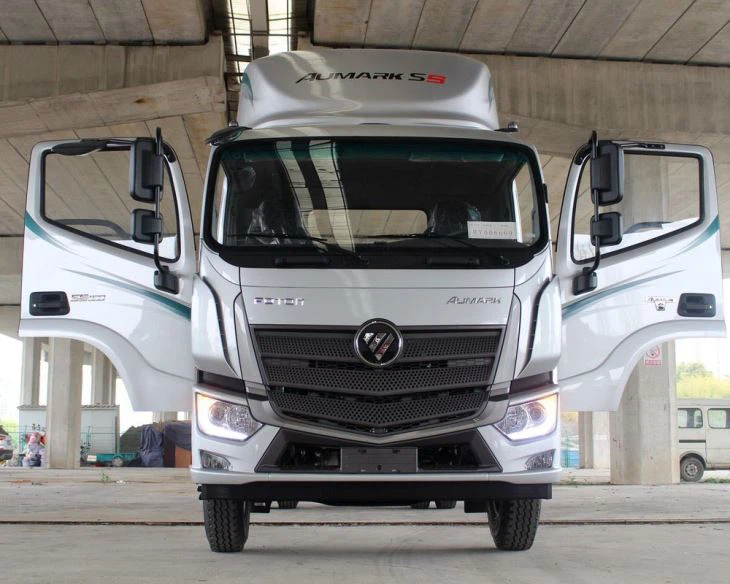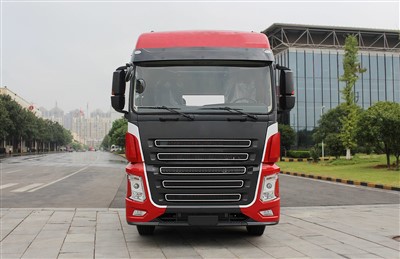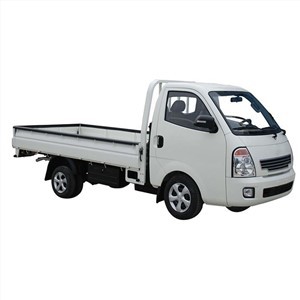Leading Garbage Truck Manufacturers: A Comprehensive Guide

Introduction
In the modern world, effective waste management is crucial for environmental sustainability and urban cleanliness. At the heart of this system are garbage trucks, the workhorses responsible for collecting and transporting waste. This article delves into the realm of garbage truck manufacturers, exploring the key players in the industry, the types of trucks available, and the advancements in technology that are shaping the future of waste management.
Understanding Garbage Trucks
What is a Garbage Truck?
A garbage truck is a specialized vehicle designed to collect and transport waste materials. They come in various designs and sizes, tailored to specific types of waste and collection methods. Common configurations include rear-loaders, front-loaders, side-loaders, and roll-off trucks.

Types of Garbage Trucks
Here are the most common types of garbage trucks:
| Type | Description | Common Uses |
|---|---|---|
| Rear-loader | Has a bin in the back where waste is loaded by manual labor or small mechanical arms. | Residential garbage collection. |
| Front-loader | Designed for commercial waste; has a front-loading mechanism for large containers. | Commercial waste and large container pickup. |
| Side-loader | Features a side-loading mechanism, ideal for automating the collection process. | Residential and urban collections with high efficiency. |
| Roll-off truck | Used for disposing of large volumes of waste in containers that can be rolled off the truck. | Construction sites and large events. |
Importance of Garbage Trucks
Garbage trucks play a crucial role in waste management systems by:
- Promoting public health through regular waste collection.
- Reducing litter and pollution in urban areas.
- Facilitating recycling and composting efforts by transporting sorted waste.
Top Garbage Truck Manufacturers
1. Mack Trucks
Mack Trucks is a leading manufacturer known for its heavy-duty vehicles, including garbage trucks. They offer a range of models equipped with innovative features that enhance efficiency and driver comfort. An example is the Mack LR, a robust rear-loader designed for optimal maneuverability in urban settings.
2. Freightliner
Freightliner produces a variety of waste collection vehicles, primarily focusing on versatility and technology integration. Their M2 model is popular among municipalities for its fuel efficiency and customizable options.
3. Peterbilt
Peterbilt is renowned for manufacturing trucks that combine style with functionality. The Model 320 is specifically designed for refuse collection with options for both front and rear-loading configurations.
4. Kenworth
Kenworth provides high-quality garbage trucks that are reliable and easy to maintain. The Kenworth T370 is a popular choice for waste disposal companies, featuring a robust chassis and various engine options.
5. International Trucks
International Trucks offers a wide range of garbage trucks designed for durability and ease of use. Their MV Series is well-regarded in the waste management industry for its safety features and ergonomic design.
6. Volvo Trucks
Volvo Trucks emphasizes sustainability in its designs. Their FE and FM models are used widely for municipal waste collection, equipped with technology to monitor emissions and fuel consumption.
7. Knapheide
Knapheide specializes in custom refuse bodies, offering versatile solutions for various types of garbage trucks. Their lightweight yet durable bodies allow for increased payloads and better fuel efficiency.
Technological Advancements in Garbage Trucks
Electric Garbage Trucks
With increasing focus on sustainability, many manufacturers are developing electric garbage trucks. These vehicles produce minimal emissions and operate quietly, making them suitable for urban environments. Companies like Volvo and Freightliner are at the forefront of this revolution.
Automated Loading Systems
Automation is revolutionizing the waste collection process. Many garbage trucks are now equipped with automated arms that can pick up bins, reducing the need for manual labor and increasing safety.
Telematics and Fleet Management
Telematics technology allows waste management companies to track their fleet in real time. This includes monitoring routes, fuel consumption, and vehicle health, enabling efficient operations and maintenance.
Advanced Recycling Solutions
Newer garbage trucks are being designed with recycling in mind. Many come equipped with separate compartments to easily sort recyclables from general waste, making the recycling process more straightforward and efficient.
Choosing the Right Garbage Truck Manufacturer
Assessing Your Needs
When selecting a garbage truck manufacturer, consider the following factors:
- Type of Waste: Different trucks are designed for specific types of waste. Understand what you will be collecting.
- Volume of Waste: Assess the volume of waste you need to handle regularly to choose the right size and capacity.
- Budget: Determine your budget for purchasing and maintaining the garbage truck.
- Local Regulations: Ensure compliance with local regulations regarding waste collection vehicles and emissions.
Evaluating Manufacturer Reputation
Research the reputation of potential manufacturers. Look for customer reviews, vendor testimonials, and company history. Established manufacturers often provide reliable products and extensive support.
Considering After-Sales Support
After-sales support is vital. Manufacturers that offer comprehensive warranties, maintenance packages, and readily available spare parts can save you time and money in the long run.
Test Drives and Demos
Before making a final decision, arrange for test drives or demonstrations. This allows you to evaluate the truck’s performance, handling, and comfort, helping you make an informed choice.
Cost Considerations
Initial Purchase Costs
Garbage trucks can vary significantly in price, dependent on the type and specifications. For example, a basic rear-loader can range from $200,000 to $300,000, while specialized models like front-loaders or roll-off trucks may cost upwards of $400,000.
Maintenance Costs
Ongoing maintenance is crucial for maximizing the lifespan of garbage trucks. Regular servicing and repairs can add up to several thousand dollars annually, depending on the usage and age of the vehicle.
Fuel Consumption and Efficiency
Fuel costs can significantly impact your operating budget. Consider trucks that offer higher fuel efficiency or explore alternative fuel options such as compressed natural gas (CNG) or electric to reduce long-term costs.
Financing Options
Explore various financing options available for purchasing garbage trucks. Leasing may be more suitable for short-term needs, while outright purchases can be a worthwhile investment for long-term operations.
Top Tips for Managing a Garbage Truck Fleet
Regular Maintenance
Implement a scheduled maintenance program for all vehicles in your fleet. This includes routine inspections, oil changes, and brake checks, which can prevent costly repairs in the future.
Training for Drivers
Provide comprehensive training for your drivers, focusing on safe operation, route efficiency, and troubleshooting common issues. Well-trained drivers are essential for maximizing productivity.

Implementing Technology for Route Optimization

Utilize software solutions to optimize routes based on traffic patterns and waste collection needs. This can reduce fuel costs and improve service efficiency.
Focus on Safety Protocols
Establish and enforce safety protocols to protect your drivers and the public. Regular safety drills and equipment checks should be standard practice.
FAQ Section
1. What is the average lifespan of a garbage truck?
The average lifespan of a garbage truck is typically between 10 to 15 years, depending on usage and maintenance.
2. Are electric garbage trucks more cost-effective?
While the initial purchase cost of electric garbage trucks may be higher, they generally have lower operating costs due to reduced fuel expenses and lower maintenance requirements.
3. How do I choose the right type of garbage truck for my needs?
Consider the type of waste you will collect, the volume of waste, your budget, and local regulations before choosing the type of garbage truck.
4. Can I customize a garbage truck for specific needs?
Yes, many manufacturers offer customization options to tailor the truck to your specific waste collection requirements.
5. What maintenance does a garbage truck require?
Routine maintenance includes oil changes, brake checks, tire rotation, fluid inspections, and thorough cleaning of the vehicle.
6. How can technology help improve waste management operations?
Technology can optimize routes, track fleet performance, monitor vehicle health, automate loading processes, and enhance recycling efforts, leading to more efficient waste management operations.
